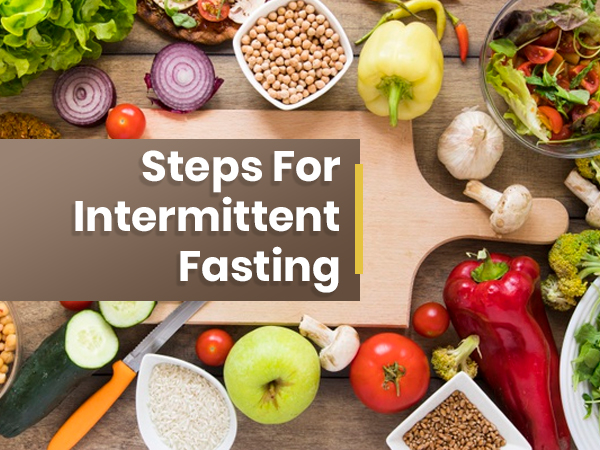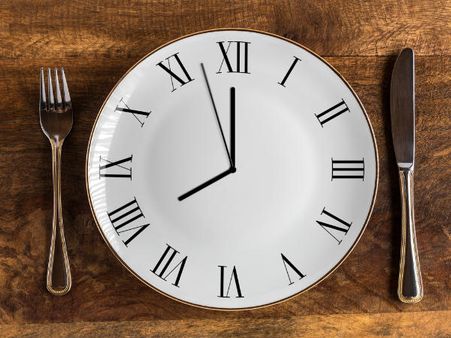Just In
- 12 min ago

- 3 hrs ago

- 3 hrs ago

- 5 hrs ago

Don't Miss
- Finance
 0.50% Dividend Yield: Midcap Cement Stock Slumps 10% Following Weak Q4 Results; Profit Down 48% YoY
0.50% Dividend Yield: Midcap Cement Stock Slumps 10% Following Weak Q4 Results; Profit Down 48% YoY - Education
 Accelerating HealthTech Innovation: Apply Now for BFI-BIOME Fellowships at Venture Center
Accelerating HealthTech Innovation: Apply Now for BFI-BIOME Fellowships at Venture Center - Sports
 When will India squad for T20 World Cup 2024 be announced? What is ICC's official deadline date?
When will India squad for T20 World Cup 2024 be announced? What is ICC's official deadline date? - Technology
 OnePlus Watch 2 New Nordic Blue Colour Option Launched; Here’s How Much It Costs
OnePlus Watch 2 New Nordic Blue Colour Option Launched; Here’s How Much It Costs - News
 EC Takes Action Against PM Modi, Rahul Gandhi For MCC Violations
EC Takes Action Against PM Modi, Rahul Gandhi For MCC Violations - Automobiles
 2024 Jeep Wrangler Facelift Launched In India - Prices Start At Rs 67.65 Lakhs
2024 Jeep Wrangler Facelift Launched In India - Prices Start At Rs 67.65 Lakhs - Movies
 Supriya Menon’s Heartfelt Anniversary Post For Husband Prithviraj Sukumaran: 13 Years With You! Wow!
Supriya Menon’s Heartfelt Anniversary Post For Husband Prithviraj Sukumaran: 13 Years With You! Wow! - Travel
 Escape to Kalimpong, Gangtok, and Darjeeling with IRCTC's Tour Package; Check Itinerary
Escape to Kalimpong, Gangtok, and Darjeeling with IRCTC's Tour Package; Check Itinerary
How To Start Intermittent Fasting: A Beginner's Guide
Intermittent fasting is a method of eating by following regular short-term fasts. That is, you go between periods of eating and fasting. Intermittent fasting is an order of having food. The process doesn't describe what to eat but tells you when to eat [1].

For example, if you're on a strict diet, you can't have any high-calorie food such as cakes or ice creams. Intermittent fasting says that if you want to have a large piece of chocolate cake at lunch, skip your breakfast.
What are the benefits of following the steps for intermittent fasting? You can lose weight faster, your metabolic rate will improve, diseases can be avoided and you can even have a long life.
There are various methods of intermittent fasting. As a beginner, you can follow these 7 steps for intermittent fasting and see the result within a few weeks.

1. Decide Your Fasting Protocol
The first and foremost steps are choosing the method of intermittent fasting that is suitable for you. The 16-hour fasting method is very popular nowadays. It means you should fast for 16 hours each day. For example, if you have breakfast, don't eat anything within 16 hours. You can skip breakfast and start at lunch. Decide according to your daily routine [2].
The other popular methods are the 5:2 diet (you fast for 2 days per week), Eat-Stop-Eat (a 24-hour fast, once or twice a week), Alternate-day fasting (you fast every other day), the Warrior Diet (you fast during the day and eat a huge meal at night) and Spontaneous meal skipping (you skip meals when convenient) [3][4].

2. What to Eat
Through intermittent fasting, you don't deliberately limit the intake of foods. You just keep a fast after eating anything. So, whatever you eat to set the eating window tactfully so that the ill effects of junk foods will not have an extreme impact on your health. However, it is always smart to choose healthy foods that are rich in nutrients and minerals required for your bodily functions [5].

3. Skip Breakfast
Although doctors and health experts swear on the importance of breakfast, it is very important for intermittent fasting. Surprising, right? By doing this, you can extend your fasting hours for up to 8-12 hours [6]. It is proved that people who have skipped breakfast for these hours have lost weight than those who have not.

4. Eat Once a Day
Is the eating window system or counting hours making you confused? This is one of the easiest steps for intermittent fasting. Eat a full meal once a day. Experts suggest having a heavy lunch [7]. The benefit of this system is that you can lose weight fast while eating your favourite high-calorie foods.

5. Go For Whole Foods
You may consider this dieting process interesting, as you can have junk foods. But, regular intake of those processed foods will not help you to lose weight. So, when preparing your protocol of eating, pile up your diet with eggs, meat, chicken, milk, fruits and vegetables. This is the most vital point among the 7 steps for intermittent fasting [8][9].

6. Weigh Yourself
It is important to check your weight every week as it would help you understand your body and how the fasting is affecting you. If you notice that you're not losing weight any more, you can change your protocol and try a new regime instead.

7. Be Busy
Keep yourself engaged because doing nothing can increase your hunger levels and make it difficult for you to follow the fast. However, make sure that you do not tire yourself out by engaging in extreme physical activities like exercise [10]. At the initial stage, you'll find it difficult to maintain. Drink lots of water. You can also have coffee or tea in between your fasting hours, but avoid sugary items or milk products, etc.

On A Final Note…
Intermittent fasting is not for everyone. And the results can vary from one person to the other. If you decide to try intermittent fasting, keep in mind that you need to follow a healthy diet as you are depriving your body of nutrients at intervals. Eating junk foods and expecting to lose weight and fat is not how it works - the type of food you choose to eat plays a critical role.
Note: Discuss with your dietician or nutritionist before following the fasting method.

Frequently Asked Questions
Q. What can you eat or drink while intermittent fasting?
A. Water, coffee, and other non-caloric beverages are allowed during the fast, but no solid foods. If you are doing this to lose weight, it is very important that you eat normally during the eating periods. That is, follow your usual eating habits.
Q. How much weight can you lose in a month with intermittent fasting?
A. It varies from one person to the other. According to a study, intermittent fasting was found to reduce body weight by 3-8% over a period of 3-24 weeks, that is 0.25 to 0.75 kg in a week.
Q. How can I improve my intermittent fasting?
A. Eat fruits, vegetables, beans, lentils, whole grains, lean proteins, and healthy fats. Let your body burn fat between meals and avoid snacking. Be active throughout the day.
Q. Does lemon water break intermittent fasting?
A. No.
Q. What not to eat after fasting?
A. After 48 hours you can start introducing complex carbs into your diet. You can now also start adding fish and meat, eggs and dairy. Try to avoid all processed foods and sugar.
-
 diet fitnessIntermittent Fasting May Lead To Eating Disorders: Here's How
diet fitnessIntermittent Fasting May Lead To Eating Disorders: Here's How -
 diet fitnessIntermittent Fasting For Women: Benefits, Types, Side Effects And Tips
diet fitnessIntermittent Fasting For Women: Benefits, Types, Side Effects And Tips -
 wellnessWarrior Diet: How Does It Work? Pros, Cons And How To Follow
wellnessWarrior Diet: How Does It Work? Pros, Cons And How To Follow -
 wellness5 Reasons Why You Might Want To Think Twice Before Embracing A Juice Cleanse
wellness5 Reasons Why You Might Want To Think Twice Before Embracing A Juice Cleanse -
 healthLazy But Effective Weight Loss: 5 Winter Hacks To Shed Fat Without Breaking A Sweat
healthLazy But Effective Weight Loss: 5 Winter Hacks To Shed Fat Without Breaking A Sweat -
 healthDo You Have Hidden Belly Fat? How To Know?
healthDo You Have Hidden Belly Fat? How To Know? -
 healthCricket World Cup: Shubman Gill’s Favourite Food Combo; 3 Ways To Make It Weight Loss-Friendly
healthCricket World Cup: Shubman Gill’s Favourite Food Combo; 3 Ways To Make It Weight Loss-Friendly -
 healthHerbs That Reduce Burn Belly Fat In Two Weeks!
healthHerbs That Reduce Burn Belly Fat In Two Weeks! -
 healthWeight Loss: 5 Ways Psyllium Husk Can Boost Fat Loss; Side Effects
healthWeight Loss: 5 Ways Psyllium Husk Can Boost Fat Loss; Side Effects -
 wellness5 Benefits Of Eating Okra/Lady Finger On A Weight Loss Diet
wellness5 Benefits Of Eating Okra/Lady Finger On A Weight Loss Diet -
 healthWeight Loss: How Long Should You Wait After Dinner To Sleep To Promote Fat Burning
healthWeight Loss: How Long Should You Wait After Dinner To Sleep To Promote Fat Burning -
 healthWeight Loss: Can Drinking Warm Water On Empty Stomach Help To Loose Weight?
healthWeight Loss: Can Drinking Warm Water On Empty Stomach Help To Loose Weight?


 Click it and Unblock the Notifications
Click it and Unblock the Notifications



